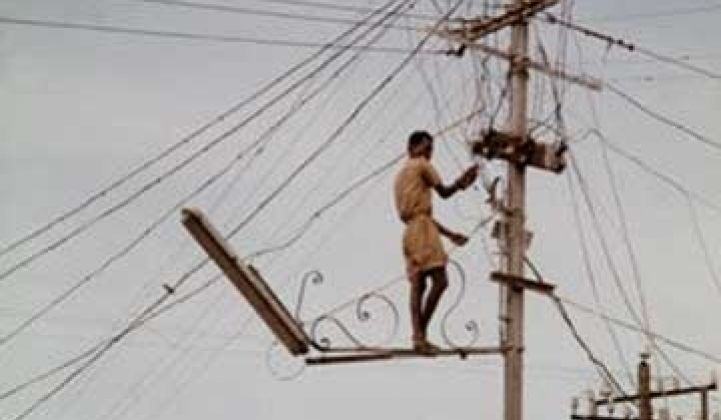As utilities worldwide switch from mechanical electrical meters to digital meters, tampering with electrical meters is getting more difficult, or at least it's attracting a more tech-savvy criminal set. To anticipate the threat of next-generation meter hacking, Freescale Semiconductor has recently released a new set of secure chips for water, gas and electrical meters.
Although the meter market in the U.S. is substantial and growing, Freescale is positioning itself as an international leader in meter microcontrollers, especially for emerging markets such as India and China, where power theft is a much larger problem than it is in the U.S. and Europe.
The devices have real-time clocks, as well as tamper detection that works on two different levels. There is a straightforward mechanical sensor that is tripped when someone tries to open up the meter that will then alert the utility. The next security level registers if someone tries to cut the backup battery, as could happen during a blackout. If the backup battery is disabled, the unit will send information back to the utility, or automatically shut the meter down. Using these capabilities, utilities can track and monitor tampering in real-time.
"The pain [of lack of security] is highest in India, China and Latin America," said Jeff Bock, director of product marketing for Industrial and Multi-Market microcontrollers at Freescale. "But obviously, everyone wants security."
He said the company's engagement was "incredibly high" in emerging markets, and "high" in other markets. "We're talking to all of the major players [in metering] in one way, shape or form."
Because European and U.S. customers are looking for more bang for their buck when it comes to meters, Freescale also offers a range of seamless integration between the metering functions, communications, clock and LCD interfaces on the device that the company claims is unique.
Freescale's focus is really in the "last mile" of the grid and into the home. The Austin-based company also has chips in smart appliances and an investment in ZigBee.
The meter chips, however, are not just for electrical meters. Bock noted that five years ago, no one was asking about monitors and controls for gas and water meters, and now many utilities are, as they begin to try to understand and reduce the amount of loss across the system.
Freescale is not stopping at the meter. A large part of the company's business is already focused on embedded control in automobiles, so it is a natural fit that the company, as it expands in the smart grid space, would also be eyeing electric vehicles. Bock said his company is talking to an ever-expanding pool of electric vehicle manufacturers about what they can offer.
"We're investing in different levels of technology in different places," said Bock. "It's an exciting time."



